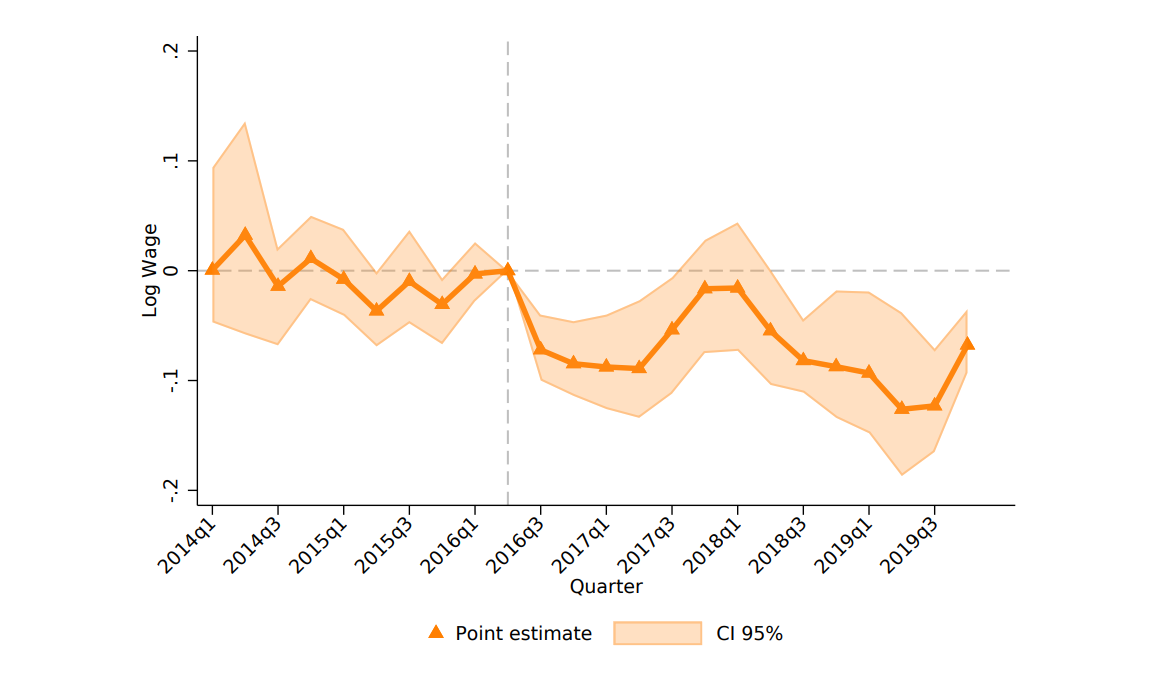This paper examines the labor market effects of Venezuelan migration on low-wage Colombian workers. Using nationally representative survey data from 2012 to 2019 and a machine learning model to classify workers by their predicted probability of being in the lower tail of the wage distribution, I implement a Triple Differences-in-Differences strategy to estimate causal impacts across cities with varying levels of migrant exposure. The main finding is that, although migration had no significant effects on employment formality or self-employment, it did lead to a decline in wages among low-wage natives in high-migration cities. This effect is robust to alternative definitions of treatment and control groups. This finding suggests that immigration can exert downward pressure on earnings at the lower end of the wage distribution and underscore the importance of protecting vulnerable groups during large-scale displacement events.

